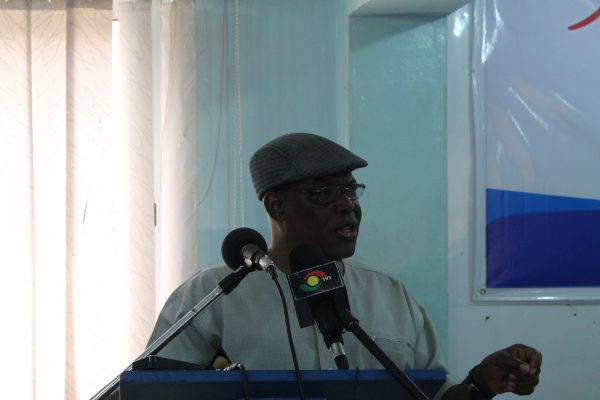As Ghana’s 2016 elections draw closer and campaigning intensifies, political tensions are fast building up. Insults and hate speech have become common in political debates and discussions in the media and other public platforms. Consequently, the use of indecent language and incidents of retaliatory provocative expressions by political party representatives are likely to be on the increase either online or offline. This has the potential of inciting citizens leading to possible violence if unchecked.
The Media foundation for West Africa therefore seeks to contribute to peaceful elections in Ghana in 2016 by building on the successes of its Language monitoring project in Ghana in 2012. The Language Monitoring project was widely commended as having contributed significantly to sanitising the airwaves in the lead up to the 2012 elections.
In 2016, the MFWA seeks to implement a special elections campaign dubbed “Issues Not Insults” under its project “Promoting Decent Language and Issues-based Campaigning for Peaceful Elections in Ghana in 2016”. The main focus of the project is to monitor, report, name and shame users of hate speech and indecent expressions on seventy (70) of the most influential radio stations across the country. The monitoring will be done over a nine-month period with reports being issued every two weeks. Other components of the project are public education on avoidance of hate speech and indecent campaign language, and advocating for professional media conduct that fosters issues-based discussions.
The project was officially launched at the International Press Centre to inform stakeholders, targets, and the Ghanaian public about the language monitoring exercise. It is expected to make the Ghanaian public aware so they are guided and measured in their language use on the airwaves before, during and after the elections.

Present were both the Chair of the National Media Commission, Mr. Kwasi Gyan-Apenteng and President of the Ghana Journalists Association, Dr. Affail Monney. Both expressed strong support for the project and commended MFWA for the exercise.
Representatives from other civil society organizations, stakeholders and the media were also present.
For more information, please contact the Programme Manager responsible for this project on: 0244867047/ info (@) mfwa.org





